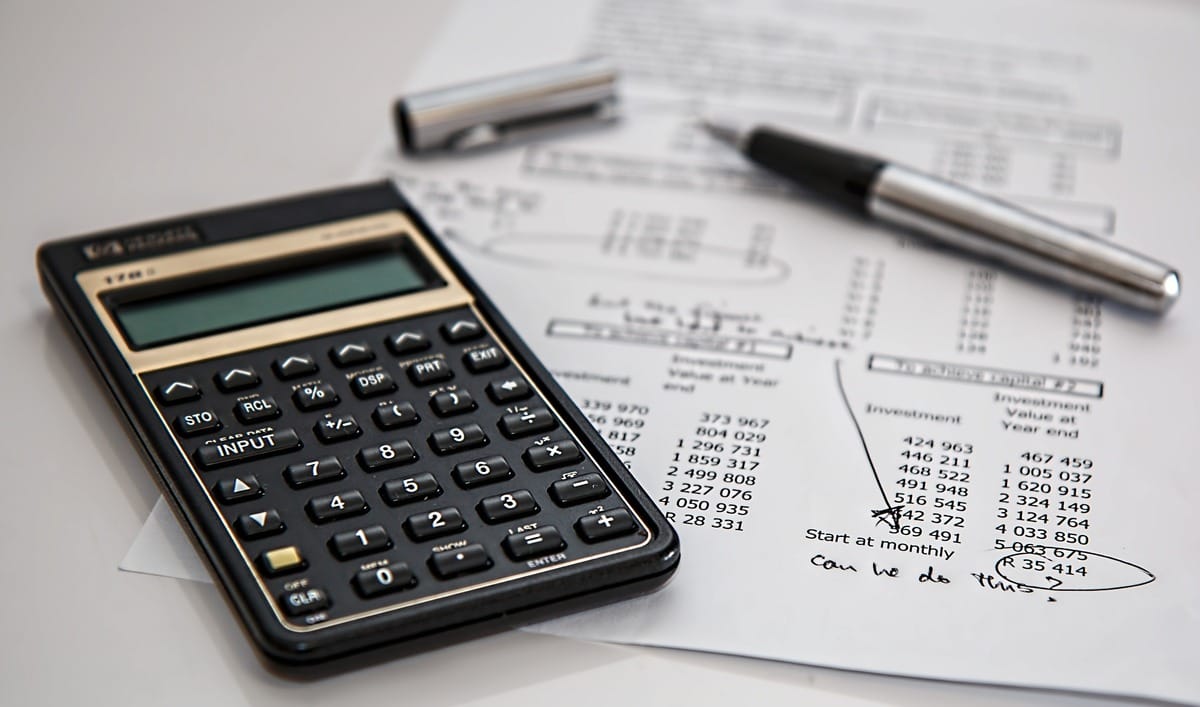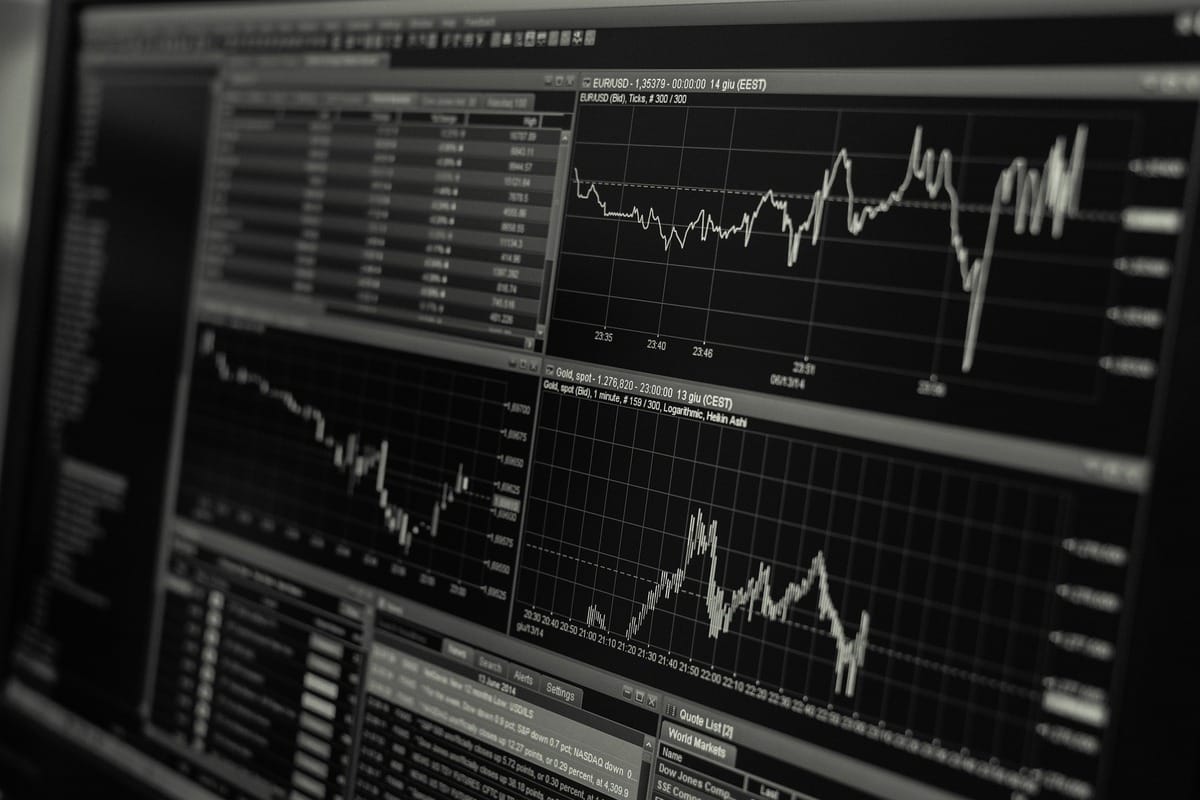
Image by Monoar Rahman Rony
Happy Friday! Welcome to another edition of The Matt Viera Newsletter.
My best friend Gene, who lives in Scotland, sent me a text immediately after he read How to Save $1 Million:
"Realistically though, who is actually giving out 7% interest these days?"
Excellent question.
Let me rephrase the question: "Where can you invest your money to reasonably expect a 7% rate of return?"
Before I answer Gene's question, I’d like to tell you about Sylvia Bloom.
Sylvia Bloom was a secretary in a Manhattan law firm and lived in a one-bedroom apartment in Brooklyn.
She was a woman of modest means.
So when Bloom died in 2016, at 97, it was something of a shock to discover that she'd left behind a multimillion-dollar estate. Almost as shocking: she had chosen to give $8.2 million to charity. Six million dollars went to educational programs at the Henry Street Settlement, a social services organization in New York City. An additional $2 million went to scholarship funds, including at Bloom's alma mater, Hunter College. "She had millions…and no one suspected it."
The article did not specify how Sylvia Bloom amassed her fortune. However, it is safe to say it was over a period of time.
Saving and investing to grow wealth is a marathon, not a sprint.
It may take longer if you are putting your money in a savings account with a low-interest rate.
It may be faster if you invest your money.

Image by Steve Buissinne
What do I mean by investing?
Investopedia defines investing as an "act of allocating resources, usually capital (e.g, money), with the expectation of generating an income, profit, or gains" over a period of time.
A person can invest in a variety of assets. Typical investments include real estate or investing in the stock market.
Let's keep it simple and discuss investing in the stock market.
Before investing in anything, including the stock market, it’s important to consider four foundational points.
Understand your finances, e.g, how much you are earning vs. how much you are spending
Budget your money to increase the amount you have to save and invest
Pay off debt
Build an emergency fund
Let's take these points in turn. A quick primer on personal finance, if you will (stick with me, I will address Gene's excellent question).
Understand your finances.

Image by StockSnap
It is essential to understand your personal finances. You can do this by knowing the difference between how much you earn and how much you spend. If you are spending more than you earn, your work is cut out for you.
When I became serious about growing my net worth, I started to track my spending. I track my spending using a spreadsheet. The spreadsheet I use has two sections:
A Checking Account Section from which I pay my monthly bills (Checking account? I can't remember the last time I signed a check, I pay all my bills online).
A Spending Section.
The Spending Section has categories listed vertically, e.g., rent, cell phone, groceries, etc., and days of the week listed horizontally along the top row. For example, when I am charged for HBO Max, I list $14.99 on the day the charge was incurred in the "streaming services" category. At the end of the month, I add the money I spent in each category. This gives me a clear picture of where my money is spent in each category for that month.
I have been tracking my spending since September 2021.
I can tell you that from September 2021 through the end of 2021, one of my most significant expenses, outside of typical living expenses, was going out to dinner and drinks with friends.
I wouldn't have known that had I not tracked my spending.
When it comes to personal finances, this is the most essential foundation, in my opinion, and the most challenging because it requires discipline and consistency. It's important to be fully informed about where you are spending money.
Budget.
Once you know where your money is going over time, you can make adjustments. If you find you are averaging $400 per month on groceries, maybe set a budget for $200 per month, or a number that you can realistically achieve. If you find you are spending $400 per month on restaurants, take-out, and happy hour, maybe set a budget for $100 per month or eliminate that expense altogether.
If you are serious about growing your wealth, reduce spending, especially on impulse purchases.
Debt.

Image by Steve Buissinne
Paying off debt is the best immediate return on your money. If you make payments on credit cards or personal loans, that is money you do not have to save or invest.
If you have multiple credit cards, pick the one with the highest interest rate and attack it. Get that balance down to zero. Once that balance is down to zero, attack the following credit card, and so on.
If you use credit cards, ensure you can pay the monthly balance, so you do not incur that dreaded interest charge.
The goal is to be debt-free.
Emergency fund.
You never know when you will need money for an emergency.
Build up an emergency fund of three to six months of living expenses in a savings account with a relatively decent interest rate. The interest rate on my current savings account is 1.93%. A diligent online search may reveal banks offering better interest rates for savings accounts. You can easily open a savings account online.
Now the fun stuff:
Investing.

Image by Lorenzo Cafaro
I want to keep things as simple and easy as possible when it comes to investing.
While I invest in individual stocks, I want to focus on investing in exchange-traded funds ("ETFs"). Investopedia defines an ETF as a "basket of securities that trade on an exchange just like a stock does." For example, suppose you want to invest your money in the 500 largest companies (the S&P 500). Instead of investing your money in 500 individual company stocks, you can invest in an S&P 500 ETF.
Approximately 80% of the money I have invested in the stock market is in ETFs.
Why?
Diversification.
Generally speaking, diversification in investments mitigates risk. Why invest $10,000 in Apple? Or in Apple, Tesla, and Amazon? If the value of one or all three of these stocks depreciates, you risk losing money. Spreading out the investment in a variety of stocks lowers the risk. If you invest in an ETF of, say, twenty-five stocks, if the value of one or two of the stocks plummets, but the other twenty-three increase in value, your loss is mitigated. The total value of your investment may increase depending on how much the value of the other twenty-three stocks increases.
All this information is a long-winded way to answer Gene's question, "Realistically though, who is actually giving out 7% interest these days?"
Keep in mind two crucial points when it comes to investing:
Invest over a period of time—like whiskey aging in the barrel, some investments get better with age.
Past performance is not indicative of future results.
The top three ETFs in my investment portfolio are:
The Vanguard Total Stock Market Index Fund ETF (VTI)
The Vanguard S&P 500 Index Fund ETF (VOO)
The Invesco QQQ Trust Index Fund ETF (QQQ)
The reported five-year and ten-year rate of return for each ETF according to the Charles Schwab website:
The five-year annualized return of The Vanguard Total Stock Market Index Fund ETF is 8.6%.
The ten-year annualized return is 11.3%.
The five-year annualized return of The Vanguard S&P 500 Index Fund ETF is 9.2%.
The ten-year annualized return is 11.7%.
The five-year annualized return of The Invesco QQQ Trust Index Fund ETF is 13.7%.
The ten-year annualized return is 15.7%.

Image by S K
If you invested $10,000 in each individual ETF on October 20, 2017, did not withdraw any money from each investment, and did not contribute any more money into each investment, the value of your $10,000 today in each ETF would be (using Nerdwallet's Investment Calculator):
The Vanguard Total Stock Market Index Fund ETF: $15,349.02.
Five years from today, the value of your initial $10,000 investment would be: $30,793.32.
The Vanguard S&P 500 Index Fund ETF: $15,812.97.
Five years from today, the value of your 2017 initial $10,000 investment would be: $32,037.85.
The Invesco QQQ Trust Index Fund ETF: $19,760.88.
Five years from today, the value of your 2017 initial $10,000 investment would be: $47,579.57.
When you invest, you want to play the long game.
The possibility of realizing a 7% or more rate of return increases over a period of time.
Thanks for reading!
Please share this with someone you believe would enjoy reading this.
Check out my other articles here.
Follow me on Twitter.
If you are not a subscriber, please subscribe:
Disclaimer: The information presented is for informational and educational purposes only. It is very important to do your own analysis before making any investment based on your own personal circumstances. You should take independent financial advice from a financial professional for the purpose of making an investment decision.

